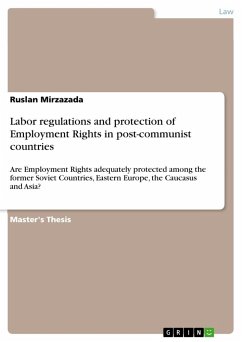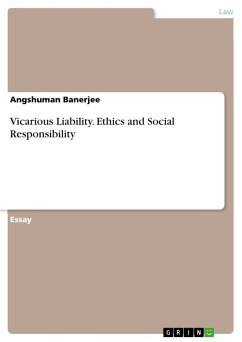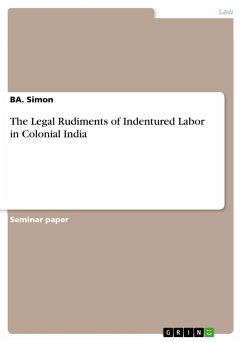Master's Thesis from the year 2016 in the subject Law - Civil / Private / Industrial / Labour, grade: 7 out of 10, , course: LL.M (Master of Law), language: English, abstract: This master thesis encompasses the analysis of labor regulations, protection of employment rights and accordingly arising problems in post-communist countries. As many different aspects can be identified within Soviet and post-Soviet periods, this master thesis explains the main problems of labor markets in post-communist areas: specifically, among Eastern European, the Caucasian and Asian countries (Central Asia).First of all, the research was made in regard to the reasons influencing the main problems occurring from the employment rights protection in the above mentioned countries. Some of the countries face very similar challenges and deal with much alike problems, however some of the countries have developed much more significantly and achieved higher efficiency in the field of employment rights protection. The author of the master thesis tries to indicate the main grounds for such different levels of development in chosen countries. The analysis was made in regard to the free market economy and opportunities each of the countries had after their independence, specifying the major problems in each of them and identifying factors which lead Eastern European countries to faster development than the others. The question was raised whether people should blame only Russian imperialism or, whether the Caucasian or Asian nations are less hard-working or not enough educated to develop their countries?Therefore, the attempt was to analyze the principal hermeneutical and historical reasons of these problems from the period of former Union of Soviet Socialist Republics (hereinafter - USSR) to modern independent democratic post-Soviet countries. Without the analysis of the mentioned periods it would be more complicated to identify some useful approaches to define the problems and to try to find effective ways to solve them.
Hinweis: Dieser Artikel kann nur an eine deutsche Lieferadresse ausgeliefert werden.
Hinweis: Dieser Artikel kann nur an eine deutsche Lieferadresse ausgeliefert werden.








